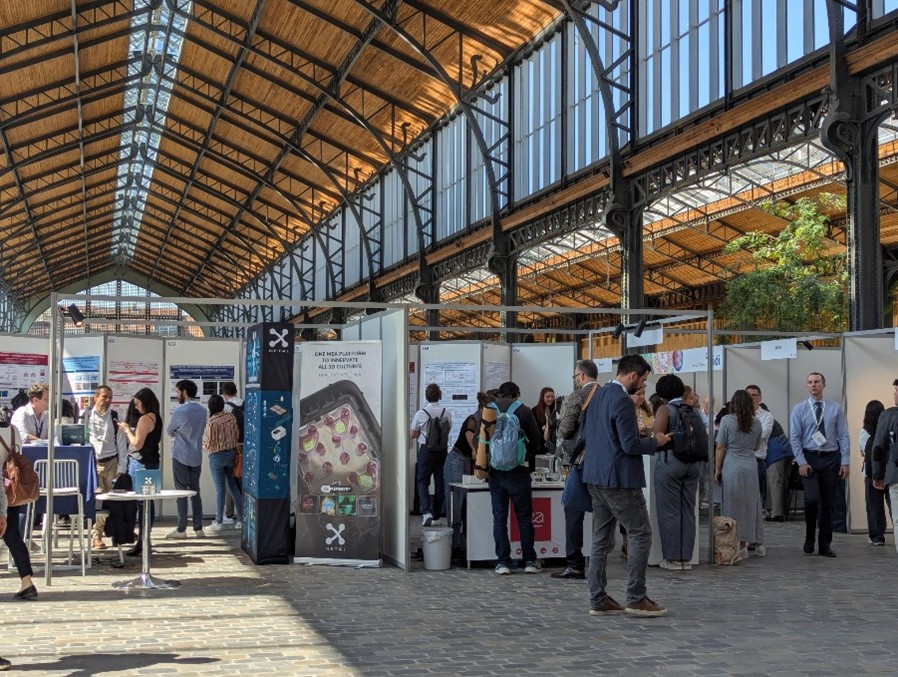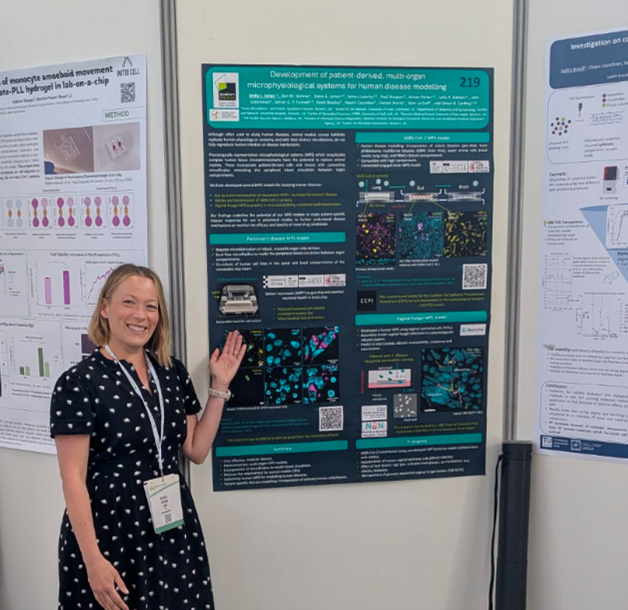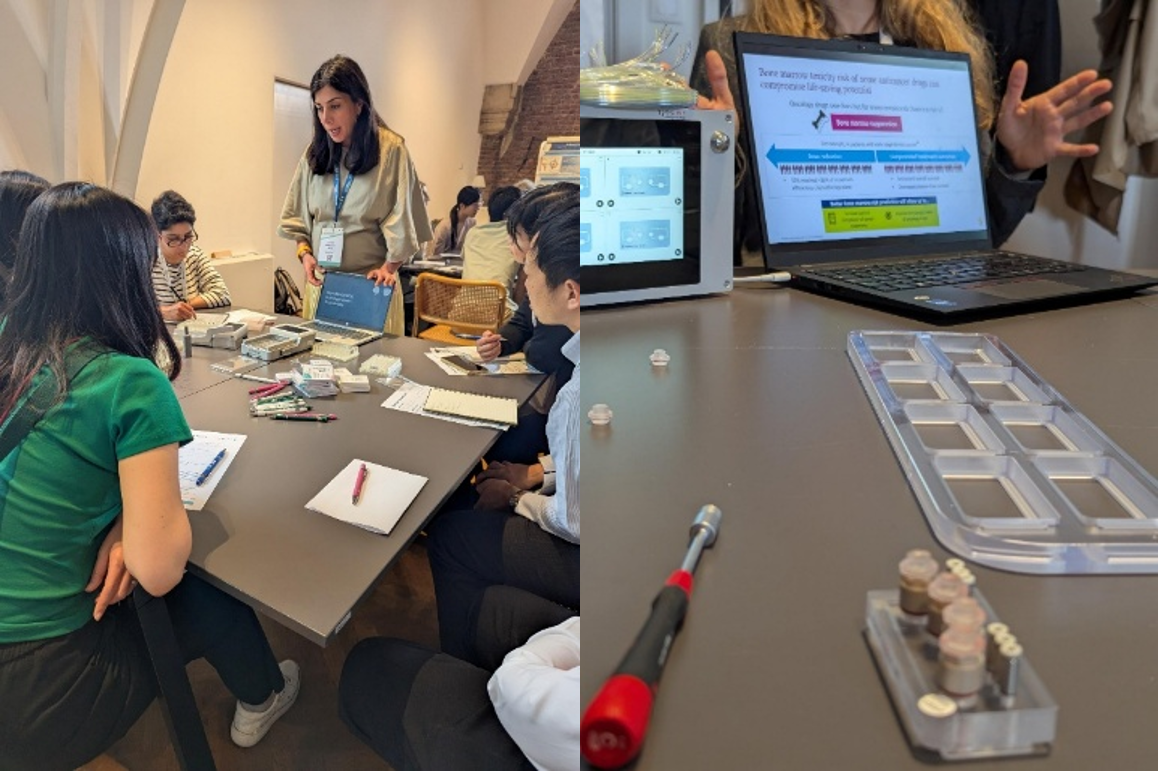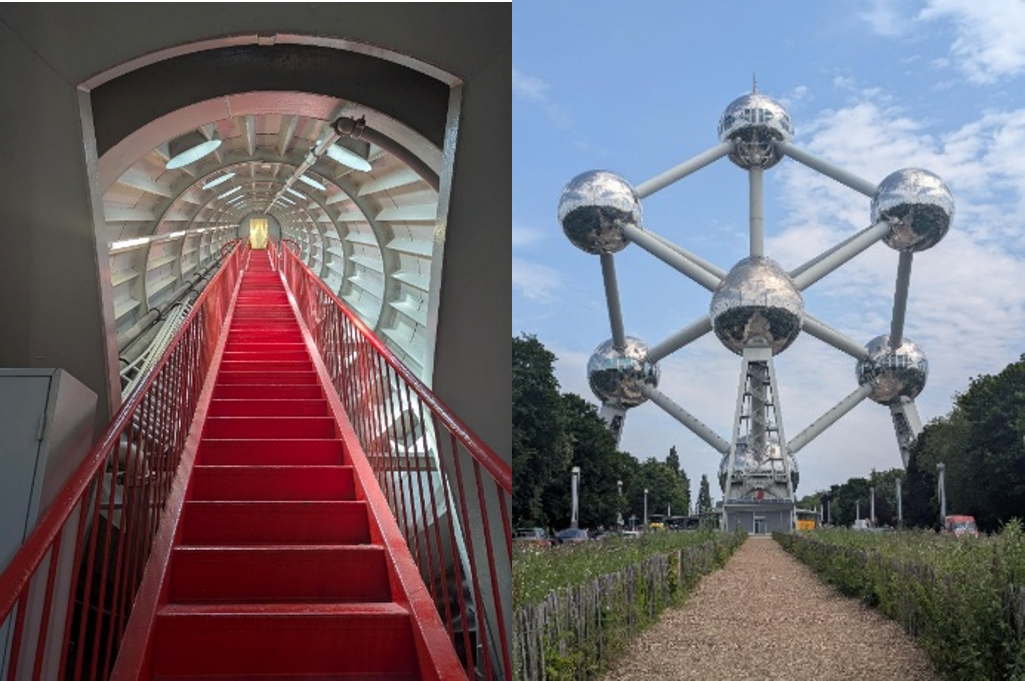Presenting new research at an international conference: using microphysiological systems (MPS) to study microbial infections
Dr Emily Jones, a postdoctoral research scientist in Professor Simon Carding’s group at the Quadram Institute recently travelled to Brussels to showcase her research at the Microphysiological Systems (MPS) World Summit 2025 and attend the hands-on Educational Session and the Modelling Aging in MPS and Organoids (AIMS) 2025 satellite conference.
Her attendance facilitated interactions with established leaders in both the academic and industry environment from all over the world and provided a great opportunity to share her latest research on using MPS for human disease modelling.

This is not her first time participating in the conference. She says, “I have previously attended the MPS World Summit for the last two years in Berlin and Seattle. I found the opportunity to network with leading experts as well as companies valuable for my research in developing multi-organ MPS models for human disease modelling.”
“I wanted to attend again this year to build on the collaborations I developed during the previous conferences and learn about the latest innovations in MPS technology.”
What are microphysiological systems?
Microphysiological systems (MPS) are miniature organ-on-chip devices incorporating human cells and tissues to model organ systems of the body. These allow researchers to study how diseases affect human tissues in a more realistic way than using traditional methods of cell culture.

Using these MPS models at the Quadram Institute, Emily has developed a new organ-on-chip system to help study how neurotoxins move from the gut to the brain in collaboration with the University of Essex, University of Hull and UKHSA. She is currently working with the University of Hull and UKHSA to study which organs of the body SARS-CoV-2 variants preferentially infect for a project funded by CEPI. Emily is also leading the development of a new organ-on-chip system to study vaginal yeast infections as part of a recently funded Clinical Seedcorn Project with Dr Paul Simpson, Consultant Gynaecologist at the Norfolk and Norwich University Hospital.
Hands-on educational session: the rapid innovation of MPS technology
The conference included a hands-on Educational Session which Emily enjoyed and gave practical experience with the latest organ-on-chip devices and developments in MPS technology.

Emily reflects, “The Education Session was a great opportunity to try out the latest MPS devices and the conferences enabled me to discuss our research findings with world-leading experts.
The area of MPS is such a fast-moving field with significant progress each year so there is always something new to learn.”
Science sightseeing and socialising
As part of her trip to Brussels, Emily also visited the Atomium which was constructed to celebrate scientific discoveries and breakthroughs.
Here’s what she had to say about the overall experience, “The packed conference programme included satellite events, outstanding talks, keynotes, roundtable discussions, networking events and social activities such as the Macro Party which also enabled me to also see some of the sites in Brussels!”

Her attendance at the MPS World Summit was made possible due to a travel grant from the Centre for Microbial Interactions Flexible Fund.
—
This blog was written and edited by Emily Jones (QIB), Nemi Asoka (UEA) and Ruby O’Grady (QIB).
Posted on 11th August 2025 in Blog.
Tags: Events, Norwich Research Park, People